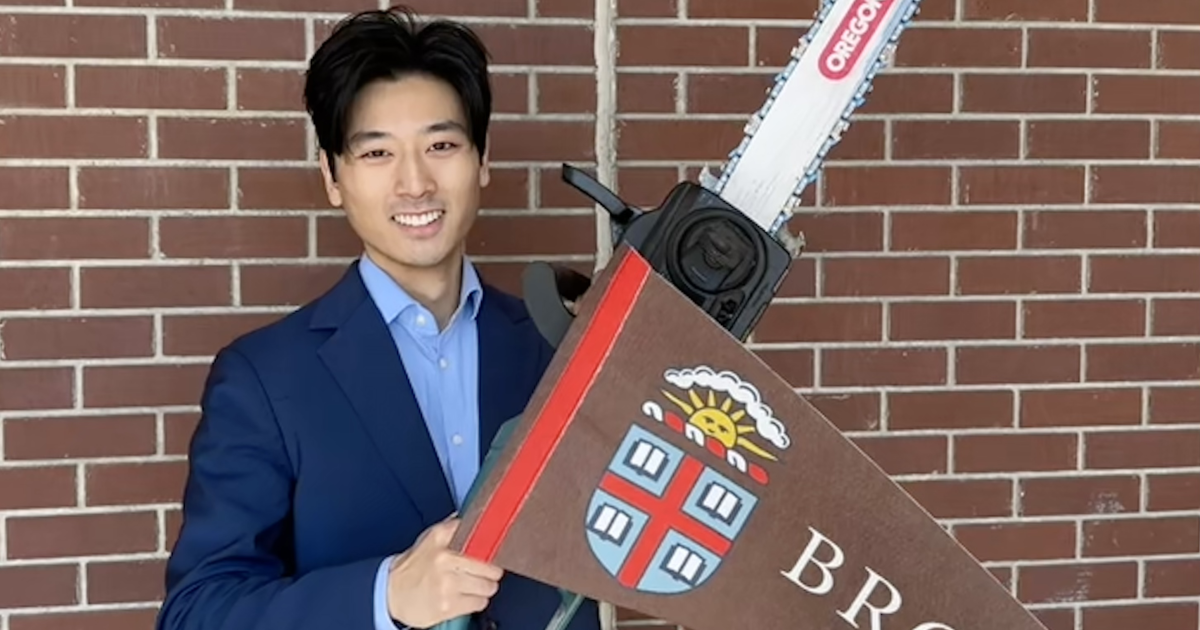“Describe what tasks you performed in the past week.”
That’s what student journalist Alex Shieh asked 3,805 administrators at Brown University in a March 18 email. The backlash was swift.
Just two days later, Brown told Shieh it was reviewing his DOGE-inspired email — based on allegations that he had “emotionally harmed” several employees and “misrepresented” himself by saying he was a reporter for the conservative student newspaper The Brown Spectator, which he was.
In Brown’s letter, officials also claimed he violated operational procedures and demanded he “return any confidential information,” warning that his access to university data systems could be restricted.
Days later, Associate Dean and Associate Director of Student Conduct & Community Standards Kirsten Wolfe threatened to charge Shieh with “failure to comply” unless he provided evidence that he had deleted unspecified confidential information that Brown alleged he may have accessed. Wolfe also demanded Shieh keep even the existence of this investigation private. Nor has Brown revealed what confidential information they believe he published, and Shieh denies having taken any confidential information.
He pointed out that even if he did have any confidential information — an allegation the university has not begun to substantiate — providing evidence that he deleted it would also provide Brown incriminating evidence that he had the information in the first place — violating Brown’s promise that students have a right against self-incrimination.
Brown’s response here flies in the face of its due process and free expression guarantees, and threatens to chill student reporting on campus. Due process is essential not just to guarantee defendants a fair shake, but to uphold the legitimacy of campus disciplinary proceedings. It also acts as a bulwark protecting students’ individual liberties. As FIRE has said before, universities that guarantee their students free expression cannot base investigations on the very speech they promise to protect — and for good reason.
Telling someone they are the target of an investigation can have a chilling effect on speech, especially in cases like this one, where universities also can’t use chilling investigations as fishing expeditions. Brown’s effort to get Shieh himself to substantiate its assertions against him by providing evidence he thinks could relate to the allegations against him flips the disciplinary process on its head.
Fundamental fairness requires that the university bear the burden of proving the allegations, not the student to prove his innocence.
Moreover, Brown’s threats also burden newsgathering practices protected by the university’s guarantee of press freedom. Certainly, administrators are within their rights to investigate actual breaches of confidentiality policies. But investigating journalism, offbeat though it may be, is a far cry from that.
University President Christina Paxson declared in a recent letter that Brown will defend free expression against encroachments from the federal government. Shieh’s case suggests that her promise does not extend to Brown’s own encroachments on free expression.
FIRE defends the rights of students and faculty members — no matter their views — at public and private universities and colleges in the United States. If you are a student or a faculty member facing investigation or punishment for your speech, submit your case to FIRE today. If you’re a faculty member at a public college or university, call the Faculty Legal Defense Fund 24-hour hotline at 254-500-FLDF (3533). If you’re a college journalist facing censorship or a media law question, call the Student Press Freedom Initiative 24-hour hotline at 717-734-SPFI (7734).

